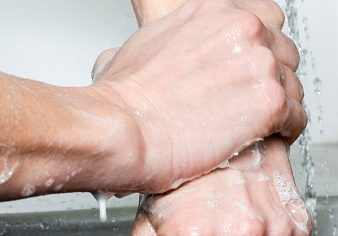
Many hospital patients were found to have ‘superbug’ multidrug-resistant organism (MDRO) bacteria on their hands or nostrils early in their hospital stay, according to a study published in Clinical Infectious Diseases.
In this observational, prospective cohort study, researchers recruited 399 newly admitted hospital patients (mean age, 60.8 years, 49% female) from two hospitals in southeast Michigan between February and July 2017 and evaluated them over 710 visits. The population of interest must have been at least 18 years of age while being newly admitted to participating hospital units within a 24-hour duration of admission to their room.
Conversely, researchers excluded any patients under observational status (generally post-procedure), any patients transferred from another hospital, any patients who due to the likelihood of MDRO colonization, had cystic fibrosis, any patients receiving end-of-life, any patients transferred from an intensive care unit, or any non-English speaking patients. The study’s sampling was performed upon admission, days three and seven, and weekly until discharge, and paired samples of methicillin-resistant Staphylococcus aureus (MRSA) were assessed for relatedness.
Results Underscore Handwashing Importance
According to the study results, 14% (n=56) of patients were colonized with a MDRO at baseline, and 10% (n=40) had an MDRO on their hands, with 29% of hospital rooms bearing an MDRO. Moreover, 6% (n=14/225 patients with at least two visits) newly received an MDRO on the surface of their hands during their say. The study indicated that new MDRO acquisition in patients occurred at a rate of 24.6 for every 1,000 patient-days, and in rooms at a rate of 58.6 for every 1,000 patient-days. Overall, the results suggest an elevated correlation between typing and MRSA on patient hands and room surfaces.
🙏 Wash up, folks (and do so often). #Superbugs found on many #hospital patients' hands and what they touch most often.
Multidrug-resistant Organisms in Hospitals: What Is on Patient Hands and in Their Rooms? https://t.co/B3w3tsLfYH#HAIs #MRSA #MDROs #VRE #handhygiene #hands pic.twitter.com/BjAEaxPQwN— Chris Hendel (@chrishendel) April 13, 2019
“This study highlights the importance of handwashing and environmental cleaning, especially within a healthcare setting where patients’ immune systems are compromised,” said infectious disease physician Katherine Reyes, MD, lead author for Henry Ford Health System researchers involved in the study, in a press release. “This step is crucial not only for healthcare providers, but also for patients and their families. Germs are on our hands; you do not need to see to believe it. And they travel. When these germs are not washed off, they pass easily from person to person and objects to person and make people sick.”
“Infection prevention is everybody’s business,” said Lona Mody, MD, MSc, a professor of internal medicine at the U-M Medical School. “We are all in this together. No matter where you are, in a healthcare environment or not, this study is a good reminder to clean your hands often, using good techniques–especially before and after preparing food, before eating food, after using a toilet, and before and after caring for someone who is sick– to protect yourself and others.”
'Superbugs' found on many #hospital #patients' hands and what they touch most often @umich https://t.co/Ndd6csw981
— Medical Xpress (@medical_xpress) April 13, 2019
A good reason to stay healthy and away from hospitals Superbugs' found on many hospital patients' hands and what they touch most often https://t.co/7hb13R4Jws via @medical_xpress
— Joel "Heart Prevention" Kahn MD, FACC (@drjkahn) April 14, 2019







 © 2025 Mashup Media, LLC, a Formedics Property. All Rights Reserved.
© 2025 Mashup Media, LLC, a Formedics Property. All Rights Reserved.